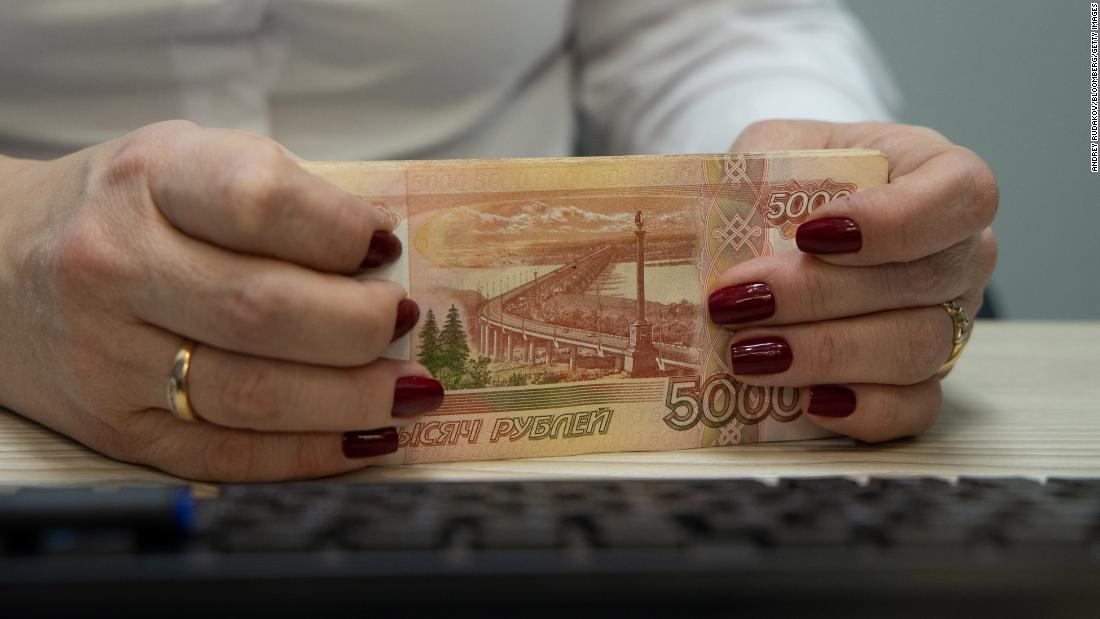Russia: Ruble crashes as banking system reels from sanctions
The latest barrage of sanctions came Saturday, when the United States, the European Union, the United Kingdom and Canada said they would expel some Russian banks from SWIFT, a global financial messaging service, and “paralyze” the assets of Russia’s central bank.
“We will also ban the transactions of Russia’s central bank and freeze all its assets, to prevent it from financing Putin’s war,” European Commission President Ursula von der Leyen said in a statement Sunday.
The collapse in the currency prompted the Russian central back to implement emergency measures on Monday, including a huge hike in interest rates to 20% from 9.5%.
“External conditions for the Russian economy have drastically changed,” the bank said in the statement. “This is needed to support financial and price stability and protect the savings of citizens from depreciation,” the bank added.
Russia is a leading exporter of oil and gas but many other sectors of its economy rely on imports. As the value of the ruble falls, they will become much more expensive to buy, pushing up inflation. The crackdown on its leading banks, and the exclusion of some of them from the SWIFT secure messaging system that connects thousands of financial institutions around the world will also make it harder for it to sell exports.
Analysts warned that the turmoil could lead to a run on Russian banks, as savers try to secure their deposits and hoard cash.
“This weekend’s events now mean that no G7 banks will be able to buy Russian rubles, sending the currency into free-fall, with the end result we could see a huge inflationary shock unfold inside Russia,” Michael Hewson, chief market analyst at CMC Markets UK, said in a note on Monday.
“A run on Russian banks inside the country appears to be already starting, as ordinary Russians fear that their credit cards might no longer work,” he added.
The Russian central bank last week intervened in the currency markets to try to prop up the ruble. And on Friday, it said it was increasing the supply of bills to ATMs to meet increased demand for cash. Russian state news agency TASS reported that several banks had seen increased withdrawals since the invasion of Ukraine, notably of foreign currency.
“These are the conditions in which runs on local banks begin,” wrote Neil Shearing, chief economist at Capital Economics. “The [Russian central bank] has this morning raised interest rates to 20% but other measures (e.g. limits on deposit withdrawals) are possible later today. All of this will accelerate Russia’s economic downturn — a fall in GDP of [about] 5% now looks likely.”
— Charles Riley, Laura He and Vasco Cotovio contributed reporting.
![]()


